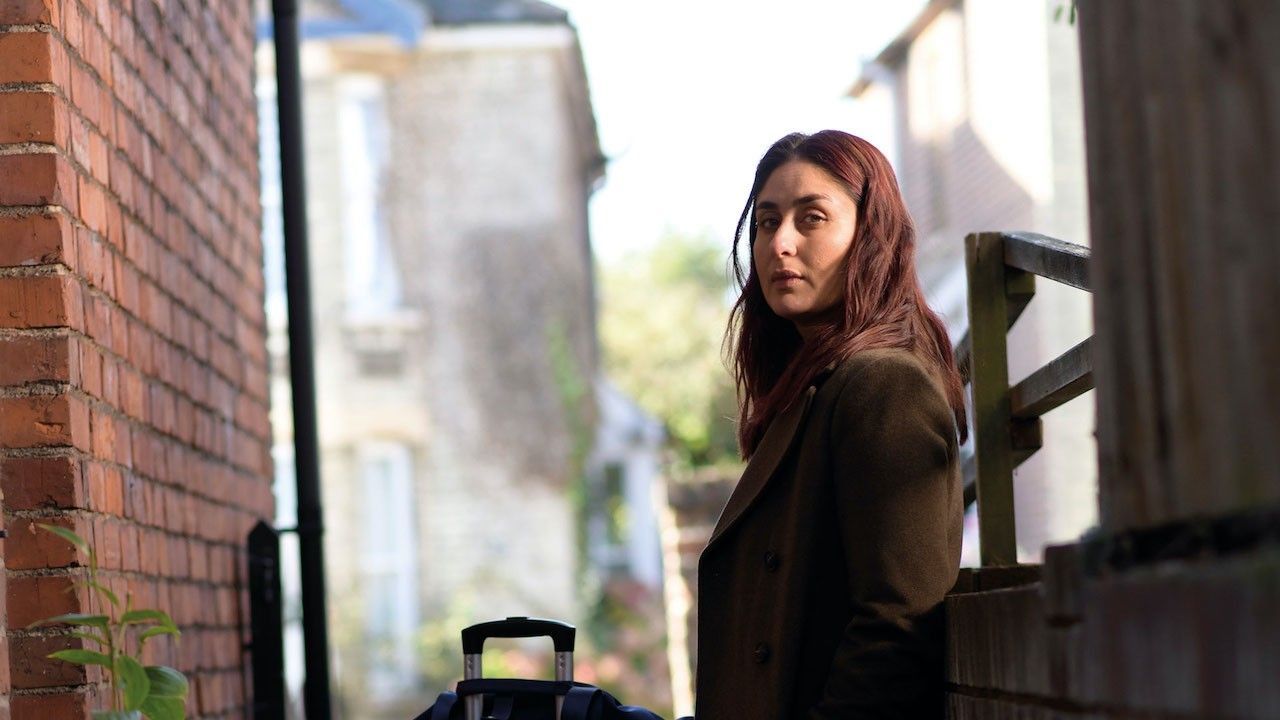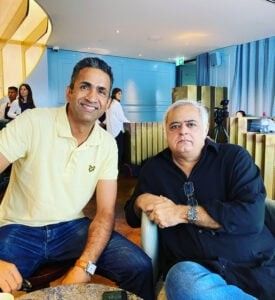WHETHER it is web serials or films, Hansal Mehta has been daring to do things differently as a director and producer.
He continued that run of unique projects with his latest movie The Buckingham Murders, which had its world premiere at the recent BFI London Film Festival and marks the English language debut of Kareena Kapoor Khan. With more big projects on the way, the hardworking filmmaker is looking forward to expanding his creative horizons further.
Eastern Eye caught up with him in central London to discuss his new movie, creativity, working with popular actress Kareena and getting great performances from his cast.
All your recent projects have been different from each other. Has that been a conscious decision?
It’s like finding a new high every time. It’s new stories, new characters. I think it’s more subconscious and conscious also. It’s my writers. People motivate me.
What drew you towards your film The Buckingham Murders?
I heard this subject in 2019. So, Aseem, who’s written the story, narrated it to me, and I immediately wanted to explore it and do a murder mystery. But it explored much more and went beyond that. It spoke about community, grief, trauma and closure. I found those themes really interesting. So, it’s sort of almost an extended exploration like Aligarh. You deal with your own trauma, which is so internal.
Most Bollywood stars are reluctant to do English language projects. How did you persuade Kareena Kapoor Khan to star in it?
It’s not just English, but a mix. Kareena was waiting for a project like this. (Producer) Ekta (Kapoor) spoke to Kareena, and she then came onto a Zoom call in 2020 when India was in a complete lockdown. She said, ‘I want to do this’ and was charged about it. I felt there was a chance to sort of push the boundaries with her. She let that happen and really pushed herself.
People see her as a commercial movie star and forget about her acting talent. Are you hoping this film makes people take notice of her performance ability?
I always hope that because people like her are such good actors. Kareena is such a good actor and people will see her for that.
How do you draw such great performances from your cast?
(Laughs) I get good actors, Asjad. I don’t know, I think it’s giving them the space to explore and sort of connect the film and characters, to something that is very personal to them.
You know, each of us processes some emotion within. So, I think somewhere I give them the space to explore that. I create an environment where actors are able to blossom.

Do all the great reviews put pressure on you?
They do, but I try not to take it. I do feel anxious. I’m human, but try to be a bit chilled about it.
Do you have a favourite moment in this movie?
Many. I mean, you know, I still can’t decide what it is. But I will. There are some absolutely priceless moments in the film.
The BFI London Film Festival has become like a second home to you now, what was it like getting your third film selected here?
I love it. I mean, I feel so good, you know. They are very picky and have embraced my kind of films. They are all three such diverse films from an Aligarh, to a Faraz to Buckingham Murders. The crowds are just growing. So last year Faraz was completely sold out. The Buckingham Murders was sold out thanks to Kareena, the moment it was announced. It’s very nice.
Is this movie aimed at a cross-cultural audience?
I think it’s for a global audience, including Indians because, for years, we’ve seen one kind of NRI story. You know, Indians living abroad, in those big mansions. This is a more realistic look into a community that is us, essentially.
What is driving and inspiring you as a director right now?
Just getting up every day and being able to work hard. I think that is my only motivating factor. I’m really enjoying it. It’s a phase where I’m feeling very mentally fertile.
You do many subjects like Aligarh that no one would do. Where does the root of your fearlessness as a filmmaker come from?
I don’t know. I mean, I’m lucky that I’ve had people like (production house) Balaji and Ekta who have supported my work. I can be as fearless as the system allows me to be. So, I’ve had a system which also supported my work. I think my fearlessness also comes out of intention. My intention is not to sensationalise or just unnecessarily create. So, I’m neither a propagandist nor an activist. These are stories of our times that I’m telling.

You have a global sensibility and have taken a step into the west with The Buckingham Murders. Can you see yourself working in the west?
Not consciously, but I enjoyed this. I enjoyed working on this and didn’t see it as any kind of stepping stone, I just wanted to work with the international crew and explore the story through their eyes. And sort of make it more authentic. I believe this whole experience should be authentic. The procedural should not feel wrong. Otherwise, we often as filmmakers, when we tell stories about other countries, we sacrifice authenticity for drama. I try to balance that.
What can we expect next from you?
I’m doing a show on Mahatma Gandhi. That begins filming in a month. It’s based on Ramchandra Guha’s books. Finally, why do you love creativity? I don’t know. It’s oxygen and keeps me living. It gives me a life.
